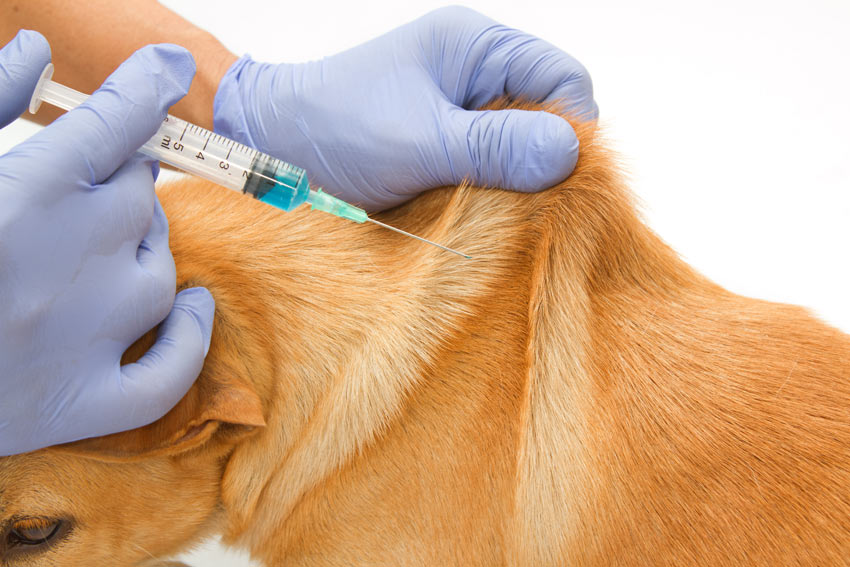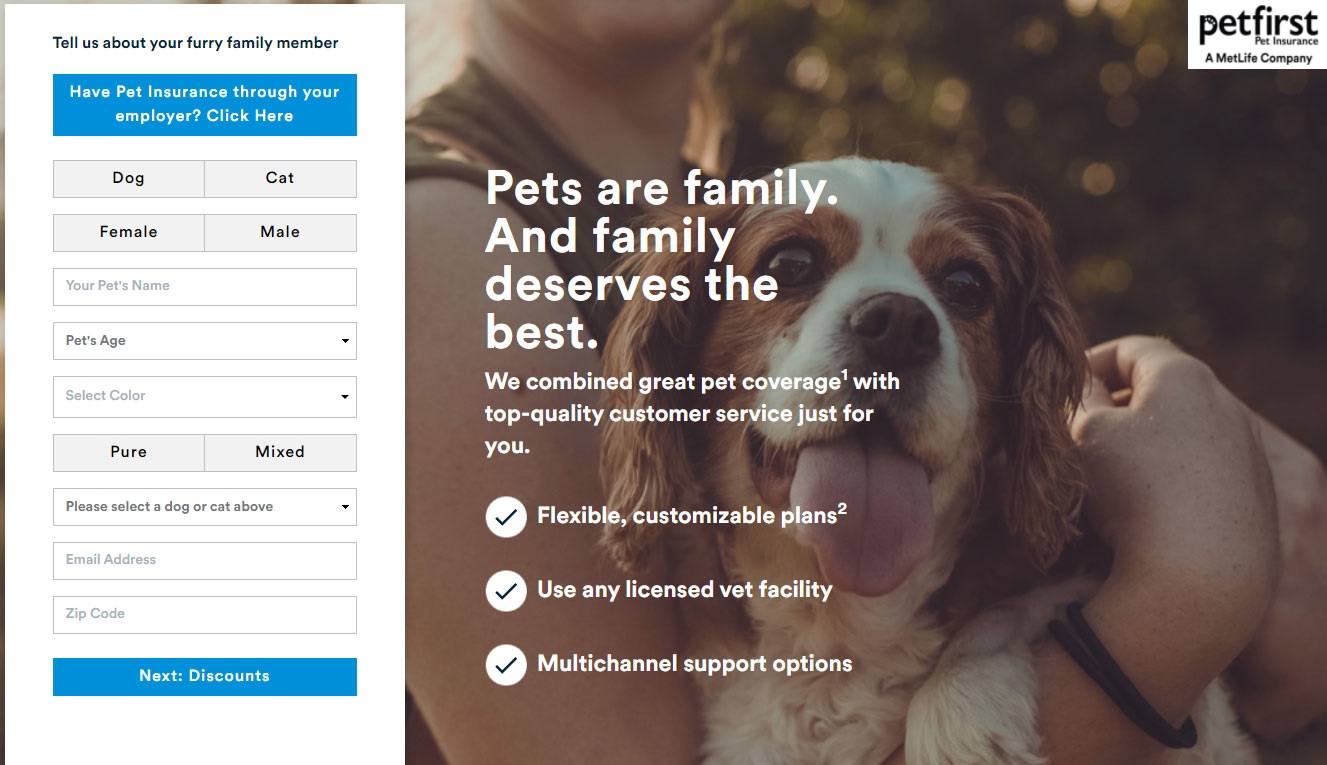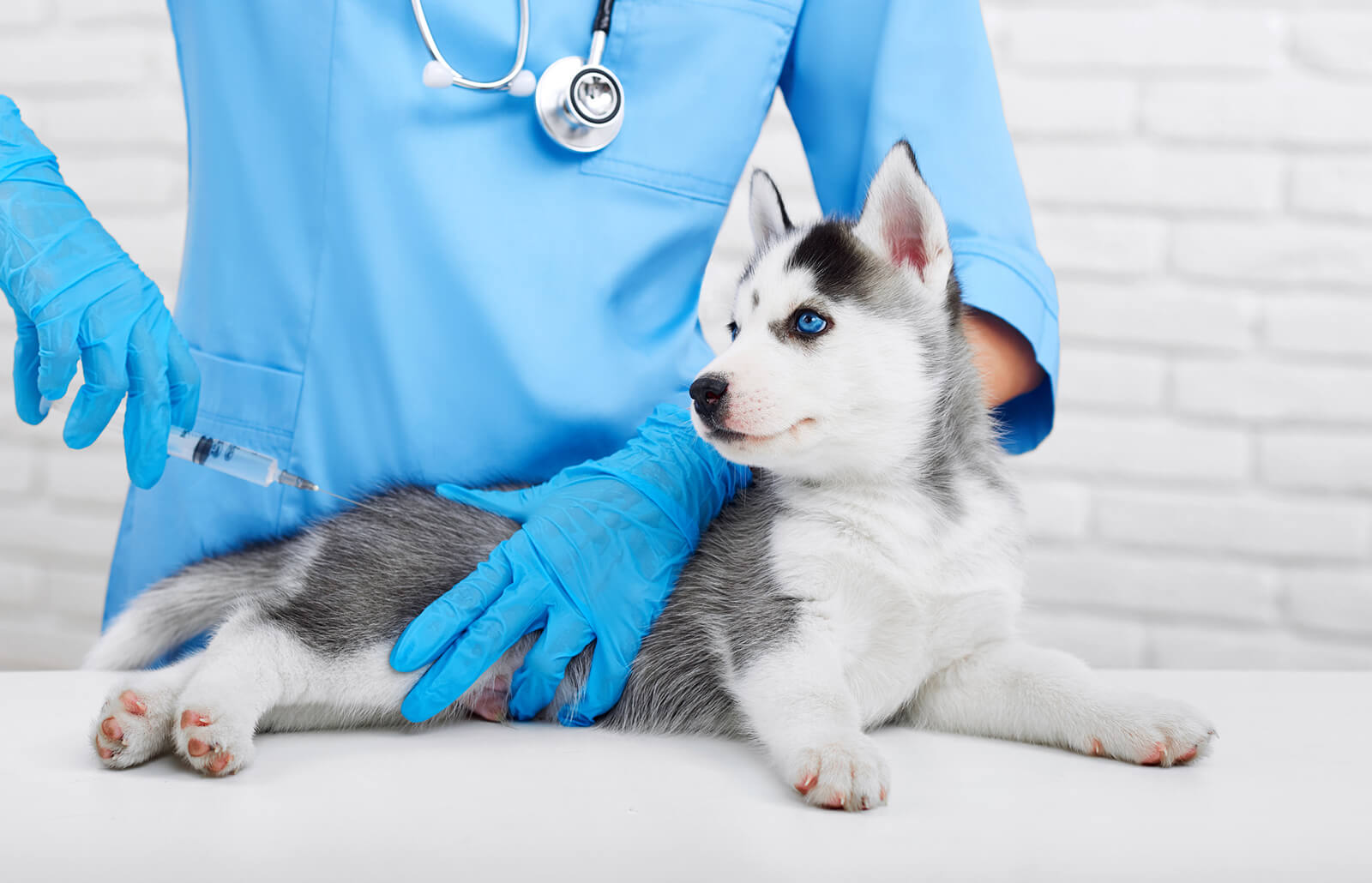Vaccines for dogs
Nobody likes vaccines... But as for humans, it is important to take care of your dog's health by having him go to the vet for a few shots that could save his life!
Why vaccinate your dog? When to vaccinate? Which vaccines are really mandatory? Here is everything you need to know about dog vaccines!
What is a vaccine?
In order to better understand why it is advisable to have your pet vaccinated, let's look at what a vaccine is. When your veterinarian gives your dog the vaccine shot, he injects a substance (antigens) into his body.
This substance is foreign to your pet's body and its purpose is to make his antibodies react at a high enough level to immunize him against the disease he is being vaccinated against.
Why vaccinate your dog?
Vaccines are made to prevent your dog from catching a potentially serious disease. The purpose is to make your dog's immunity react in such a way that the day he will have a contact with one of the serious diseases against which he is vaccinated, his antibodies will fight it.
The vaccine is a preventive act, so it will be given to a healthy animal. If your dog is already a carrier of one of the diseases we will see below, it will not be possible to vaccinate him.

Are vaccines mandatory for dogs? If so, which ones?
If you do not travel and do not board your dog, no vaccinations are mandatory. However, it is strongly advised to vaccinate them against certain diseases that we will see below. In his vaccination booklet, you will see in the first pages a tab called "primovaccination", we will see what it means. We have always heard that we can vaccinate our puppies from the age of eight weeks but why not before?
Simply because during the two months following his birth, the puppy is protected by his mother's antibodies. And yes, when the puppy heads his mother, he ingests through the milk antibodies that will protect him during these first two months of life.
The colostrum is also rich in antibodies. When he is two months old, it will be necessary to make his first vaccines (primovaccination) so that he remains protected.
In general, the primovaccination is done in two injections at one month interval. You will have to be very careful during the month that will pass between the two injections. Your puppy will be really protected only at the second injection. It will be necessary to avoid that he is in contact with non-vaccinated dogs, that he sniffs stools or urine in the street or in the forest (because they can be carriers of diseases).
In order for your dog to continue to be protected for the rest of his life, it will be necessary to do annual booster shots or every six months depending on where you live.
It is important not to be late with your dog's annual vaccination: on the one hand, he will no longer be properly protected and on the other hand, it will be necessary to give him the two injections again in order to bring him up to date and this has a cost.

The main diseases for which a vaccine protects your dog
If you continue to look at your dog's vaccination record, you will find stickers with letters on them (usually CHPL or CHPLR, these letters may vary depending on the laboratory). But what do they correspond to?
• The C corresponds to the distemper: it is a contagious disease due to a virus. The incubation period is 3 to 7 days. Several symptoms can be observed if your pet is affected by this disease: a long-lasting fever, an oculonasal catarrh (this means that there is pus in the eyes and nose), a cough, neurological problems (convulsions, paralysis), digestive problems (vomiting, diarrhea). Fortunately, a vaccine exists against this serious disease. In order to vaccinate your pet as well as possible, the first injection should be done at 8 weeks of age, then another one will be necessary 3 to 4 weeks later, and then a booster injection will be necessary every year during his whole life.
• The H for contagious canine hepatitis or hepatitis of rubarth: there too it is a contagious disease due to an adenovirus. Its incubation is from 3 to 6 days. The main symptoms are a high fever lasting 4 days, a gastroenteritis, the animal can seem to have the back arched which is due to a liver which is large, eye disorders (uveitis)... The vaccination protocol is identical to that of the square disease.
• The P for parvovirosis: it is a very contagious disease due to a parvovirus. The incubation period is about 4 days. This disease often affects puppies. The main symptom will be a hemorrhagic gastroenteritis (vomiting, diarrhea with blood, anorexia). Animals die quickly from this disease (within 2 to 3 days after the onset of symptoms). The smell of this diarrhea is very specific to parvovirosis. The vaccination protocol is identical to the other diseases.
• The L for leptospirosis: it is a contagious disease. Your companion can catch this disease by being in contact with the urine of an infected animal, but also by drinking contaminated water (often in the forest, puddles are contaminated by the urine of rats or foxes) or by ingesting food that is also infested (for example, wild blackberries in the forest contaminated by fox urine). The incubation period is 4 to 6 days. The main symptoms are digestive disorders (vomiting with blood and hemorrhagic diarrhea), jaundice (i.e. all mucous membranes turn yellow), hyperthermia. The animal dies in the following days. The vaccination protocol is also identical to that of the square disease except if you have a hunting dog which can be more exposed to the risks of this disease. There it is advised to make for the primovaccination 2 injections at 3 weeks of interval and a recall every 6 months.
• The R stands for rabies: it is a contagious disease caused by a virus. The main symptoms will be a change in behavior, paralysis and death of the animal. In terms of vaccination protocol, it is possible to vaccinate your pet from 3 months of age and then one injection per year will be necessary.
We have seen the main diseases against which it is advisable to protect your companion. In some regions such as the Mediterranean, it is also advisable to vaccinate against leishmaniasis which is caused by a small mosquito called phlebotomus or piroplasmosis for animals living in the south west, which is carried by ticks.
However, if you travel outside your country or board your pet, these vaccines become mandatory. Some boarding kennels also ask for a vaccine against kennel cough. This is a very contagious disease that affects the respiratory tract and causes a strong cough. It takes a long time to cure.
If you have to go camping or take a boat or plane with your companion, ask the company, some require the rabies vaccine even if you do not leave the department.
You should also know that dogs belonging to the first or second category must be vaccinated against rabies. A little advice before concluding this article, remember to deworm your pet 2-3 days before his vaccination appointment. And as the saying goes "prevention is better than cure".
Loving and educating your pet also means protecting it against the hazards of life. This is why we strongly recommend that you take out health insurance as soon as possible. This will save you astronomical veterinary fees in case of accident or illness.


